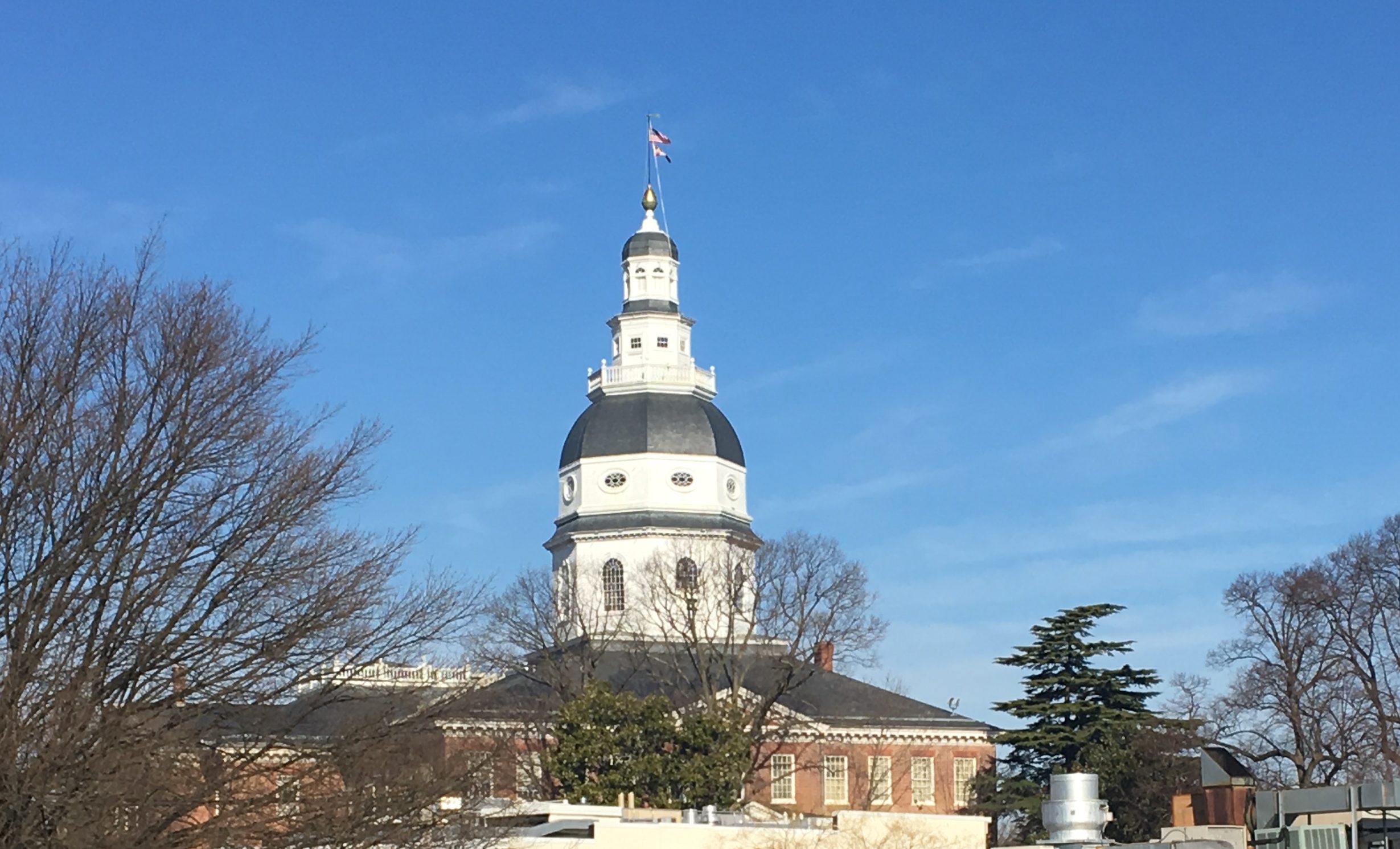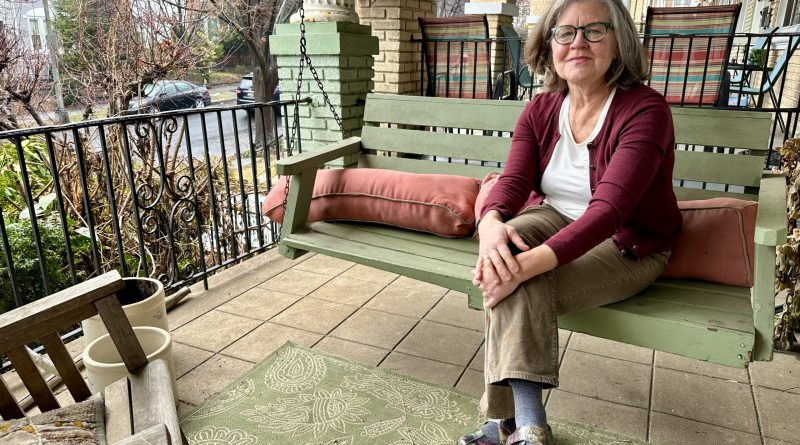As Maryland considers medical aid in dying, here’s how it’s playing out in DC
By SAPNA BANSIL
Capital News Service
WASHINGTON – A 74-year-old man with Lou Gehrig’s disease. An 88-year-old man with congestive heart failure. A 54-year-old woman with cancer.
These are among the 24 terminally ill patients who, between 2017 and 2022, ended their lives under Washington, D.C.’s Death with Dignity Act, according to public records. The law gives D.C. residents with incurable illnesses the option to die by ingesting lethal medication and requires the government to generate annual reports on those who choose to do so.
Those reports are of interest this year as legislatures across the country push to expand access to medical aid-in-dying options like the one in D.C. In neighboring Maryland and Virginia, for example, measures to legalize the procedure are now pending in the legislatures.
In Maryland, aid-in-dying proposals in past years have faced pushback from a number of opponents. Religious groups and pro-life activists argue it infringes on their belief in the sanctity of life. Physicians fear it may violate medical ethics. Disability rights groups worry that aid in dying would be used to encourage individuals with disabilities to end their lives.
But advocates say there’s unprecedented momentum this year for an aid-in-dying law in Maryland – in part because arguments for the option have been strengthened by its implementation in D.C. and 10 other states.
People in Maryland “should feel safe knowing that it’s tried and tested,” said Donna Smith, the Maryland and D.C. campaign director for the nonprofit group Compassion and Choices. “It’s not a large number of people that use this, but for the people that need it, it’s everything.”
In 2016, D.C. became the sixth jurisdiction in the nation to pass aid-in-dying legislation. According to a Capital News Service analysis of annual reports released by the D.C. Department of Health, the 24 people who have died under the law ranged in age from 40 to 98. Seventeen patients had cancer, while others had neurological, heart, or lung conditions.
Data was available through February 2022. The District officially counts 23 people as having utilized aid in dying; however, 24 patients are listed in Department of Health records.
Many who sought aid in dying did so to end their suffering, according to Dixcy Bosley, a nurse care manager in D.C. who specializes in hospice and end-of-life care. As a volunteer with Compassion and Choices, Bosley has counseled several patients in the District who pursued it as an option.
“I’ve been with five people,” Bosley said, “and every single one was just a really peaceful experience.”
Bosley recalled the first aid-in-dying patient she cared for in the District: A man in his 60s and former electrician who depended on an oxygen tank to breathe. To be eligible, patients must have less than six months to live, make a series of oral and written requests, and be sound of mind.
Bosley said she was struck by how the man planned for his death. He set a date and had family and friends visit to say their goodbyes.
“He was not suicidal,” Bosley said. “He really just wanted to stop suffering.”
On the day he died, his wife and daughter were by his side as he mixed and ingested the medication. Through the cracked windows in his room, they could hear the sounds of a neighboring elementary school.
“We could hear the kids in the elementary school playing and laughing outside,” Bosley said. “I just felt like it was just a beautiful death.”
Concerns about ethics and access
Fewer people have utilized aid in dying in D.C. than advocates had expected, according to Smith.
Among the biggest barriers to accessing the procedure is the lack of doctors and pharmacies willing to provide care. In D.C., there have never been more than four physicians who have prescribed life-ending medications in any given year, the CNS analysis found.
And according to Bosley, many retail pharmacies refuse to fill aid-in-dying prescriptions. (Major retailers declined or did not respond to CNS requests to discuss their policies on this.)
The Medical Society of the District of Columbia, which represents physicians in the District, did not offer an opinion as the D.C. Council was debating its law in 2015 and 2016. A spokesperson for the group declined to comment for this story.
However many providers said that aid in dying is inconsistent with their obligations to treat and heal their patients.
“People bristle at the idea that we would be able to heal through killing,” said Daniel Sulmasy, a physician who serves as director of the Kennedy Institute of Ethics at Georgetown University, located in D.C. “This is something that I think grates against the fundamentals of the profession.”
MedStar Georgetown University Hospital prohibits doctors from participating in the District’s aid-in-dying program, according to Sulmasy.
“We can stop treatments and make sure people are comfortable, but we never act with the specific intention of making somebody dead,” he said.
Within the advocate community, there are also concerns about racial disparities in accessing aid in dying.
In D.C., where 45% of the population is Black, 22 of 24 patients who have utilized the option are white, the CNS analysis found. One patient was Black, while another was Hispanic.
Similar trends have appeared in other states that have legalized aid in dying. In California, among the most racially diverse jurisdictions with an aid-in-dying law, 0.8% of patients have been Black.
The disparities stem, in part, from broader health inequities, Smith surmises.
“I know in [the Black] community, we’re still fighting to live,” said Smith, who serves as the diversity, equity, and inclusion advisor to Compassion and Choices. “We don’t get adequate health outcomes to begin with. So it’s hard to say, ‘Okay, let me offer you this option [at the end of life]’ when you haven’t been given the support you need to live.”
Prospects in Maryland
Maryland is among 18 states currently weighing aid-in-dying legislation. The bill is modeled after existing laws across the country and is the same as a measure that failed to make it out of committee a year ago.
Like in other jurisdictions, the bill would require patients to self-ingest medication. Physicians and health-care facilities are not obligated to provide aid-in-dying services.
Similar measures have been considered in Maryland in the past but failed to pass – though they came close. In 2019, the House of Delegates approved an aid-in-dying bill that failed in the Senate on a 23-23 tie vote.
This year, as issues of bodily autonomy gain heightened awareness following the Supreme Court’s decision to overturn Roe v. Wade, Maryland Senate President Bill Ferguson, D-Baltimore City, has indicated a willingness to bring an aid-in-dying bill to a vote.
Governor Wes Moore has also expressed support for bringing the option to Maryland.
“If a bill makes it to my desk with transition with dignity at its core, I will sign it,” Moore said.
Senate Minority Leader Stephen Hershey, R-Kent, Queen Anne’s, Caroline, and Cecil expect most Republicans to oppose such a bill.
“From a perspective of the sanctity of life, a lot of times, it boils down to our religious beliefs on some issues,” Hershey said. “This is certainly one of them.”
Among those who hope the Maryland bill passes is Diane Kraus, a 59-year-old Baltimore native who was diagnosed in May 2021 with metastatic breast cancer and has since been advocating for the right to end her life.
Kraus has undergone four different types of chemotherapy and continues to receive treatment every three weeks. But it’s become increasingly difficult for her to manage her symptoms, which include pain, nausea, confusion, and headaches, among others.
Motivated by her own experiences with a terminal illness and 35 years of working as an occupational therapist in hospice and home health settings, Kraus testified in support of Maryland’s aid-in-dying bill last year.
“I wanted it for me,” Kraus said in an interview with CNS. “I had seen so many people die in pain and so many people have such a poor quality of life at the very end. And they would say, ‘I just want to go home and be with God and be with my relatives.’ … And that just really struck me.”
Kraus was devastated when Maryland’s bill stalled last year and has considered relocating to a state where aid in dying is legal. She hopes that existing laws, like the one in D.C., help sway skeptics in Maryland this legislative term.
“Even people highly opposed…come around to some degree when they see it and have to live with it,” Kraus said.

Capital News Service is a student-powered news organization run by the University of Maryland Philip Merrill College of Journalism. With bureaus in Annapolis and Washington run by professional journalists with decades of experience, they deliver news in multiple formats via partner news organizations and a destination Website.

